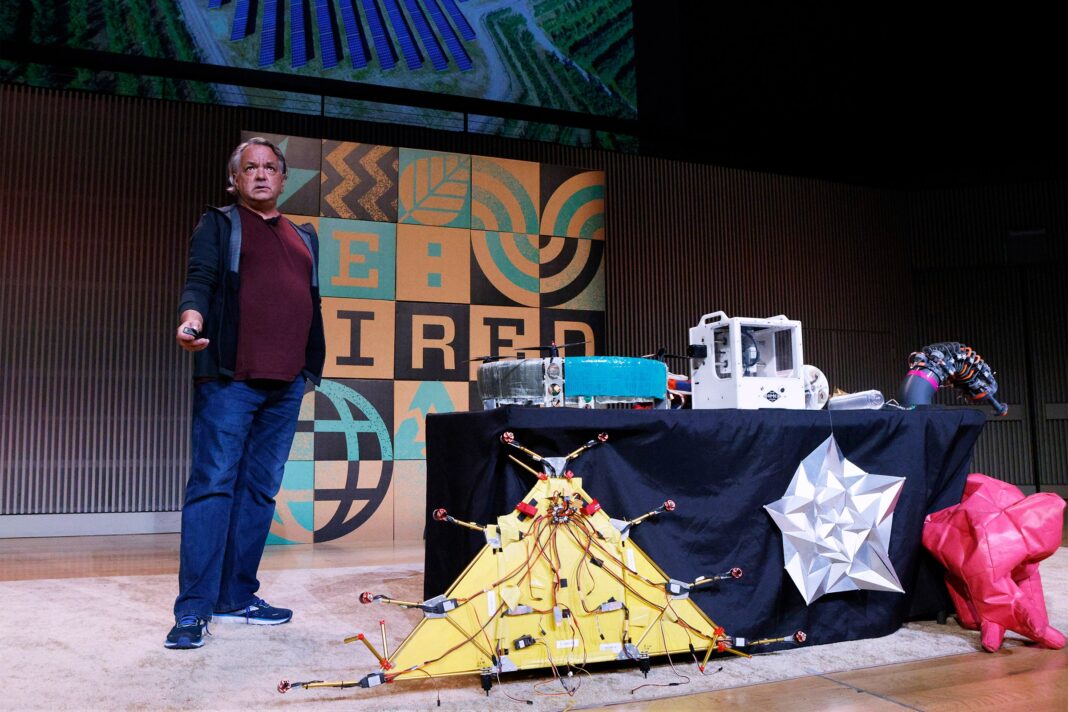Squinting through some techno-optimistic AR goggles, one might conclude that humanity’s battle with climate change is in pretty good shape. Solar panels and wind turbines are cheap and powerful enough to beat with dirtier energy sources; battery-powered vehicles have begun to outcompete gas-powered cars. Even greening the most energy intensive parts of society, like cement or steel-making, looks increasingly viable.
And yet, for all this technological bounty, the process of decarbonization isn’t moving nearly fast enough. Talk with a geothermal energy entrepreneur or solar developer, and you’ll get an earful of roadblocks: broken supply chains, fossil fuel subsidies, export taxes, lack of expert labor. Most of all, they’ll talk to you about land use—how hard it is to get permits to build the wells and panels needed to generate clean power and the transmission lines needed to deliver it to people.
In recent weeks, the US Senate has debated reforms that may streamline those efforts. But the negotiations swiftly demonstrated the devilish tradeoffs involved in any climate policy. More panels and power lines are a good thing.
But how should the imperative for systemic change be balanced against threats to wildlife and communities who live where that infrastructure will be built? And what if regulatory speed-ups also boost fossil fuel infrastructure, as some in Congress still seem to hope? Earlier this week, permitting reform was squashed by the weight of those questions. Across the country in San Francisco, those same debates featured at Re:WIRED Green , a one-day event featuring scientists, entrepreneurs, and artists tackling climate change. Say you’ve got the technology that can make a dent in the problem.
Great work! But how do you handle the social and political change inevitably needed to implement it at scale? How will the benefits be distributed in a way that is just and effective for all? Some try to drive systemic change from the ground up. Peter Mui founded the Fixit Clinic, which trains people to repair their own devices. That’s good for the climate because it reduces waste and demand for new products and raw materials.
But many devices can’t be fixed, due to things like packaging, design choices, or copyright enforcement. Capitalism, basically. Mui’s work involves fighting back in small ways—figuring out how to repair or hack the nuts and bolts of complex hardware, despite manufacturer roadblocks, and advocating for those roadblocks to be removed.
But his broader aim is to help bring about a different system of manufacturing, “an alternative future where most of the things that we consume are built regionally or locally,” he said. Peter Mui speaks onstage during RE:WIRED Green 2022. Work towards those kinds of alternative futures is already happening.
“No community is waiting for people to save them,” said Sarah Shanley Hope, a vice president at the Solutions Project. She described a concept called “multi-solving”—how technologies like solar panels can offer not just green power, but also jobs and energy savings. Those combined benefits allow climate projects to become a catalyst, sparking grassroots organizing for policies that make green projects more accessible to communities on the frontlines of climate change.
Climate action, she said, is about “community care. ” Colette Pichon Battle, an activist and lawyer from Southern Louisiana who leads vision and initiatives at Taproot Earth, a climate justice organization, called on the audience to think outside an economic and social system that can incentivize the destruction of individual communities. “It sacrifices people like me,” she said.
“It sacrifices places like the South. ” The transition to green energy cannot simply repeat the patterns of extraction. “We have to stop telling ourselves this lie that transition from one form of repression to another will save us.
” Sometimes even individuals can take action that helps a wider system. Patricia Hidalgo-Gonzalez, a professor at UC San Diego, spoke about her research studying how to keep a greener electric grid online as more intense heat waves drive up demand for air conditioning. Earlier this month, text-message warnings encouraged Californians to conserve energy as the state’s grid teetered on the brink of blackouts.
Hidalgo-Gonzalez said that shows how mass coordination can prevent disaster. “Keep up the good work,” she told the audience—and, please, consider charging your EV during the day, when the sun is shining brightly. In some cases, new technology will help ease some of the tricky trade-offs in climate policy.
Want more batteries on the grid? Designs that use less lithium or cobalt will be both cheaper to source materials for, and easier to build. Alan Ahn, a senior fellow at Third Way, a think tank, lauded designs for a new generation of smaller nuclear reactors that the industry hopes will be safer and produce less waste than those in service today, making them far easier to build. And Jim McBride, cofounder and CTO of tech incubator Otherlab, spoke about a technology called Sunfolding , a pneumatic system that can tilt and swivel solar panels and is cheaper than conventional motors, allowing solar installations to be more productive using the same space.
Yet in the end, despite their techno-glamour, hardware projects like those are only part of the solution, and as likely to lead to a new thorny policy discussion as they are to side-step an old one. As Mui put it, fighting climate change is “all about hard choices. ” And sometimes, it’s all about getting the right permits.
.
From: wired
URL: https://www.wired.com/story/rewired-2022-technology-climate-justice-community-policy/



